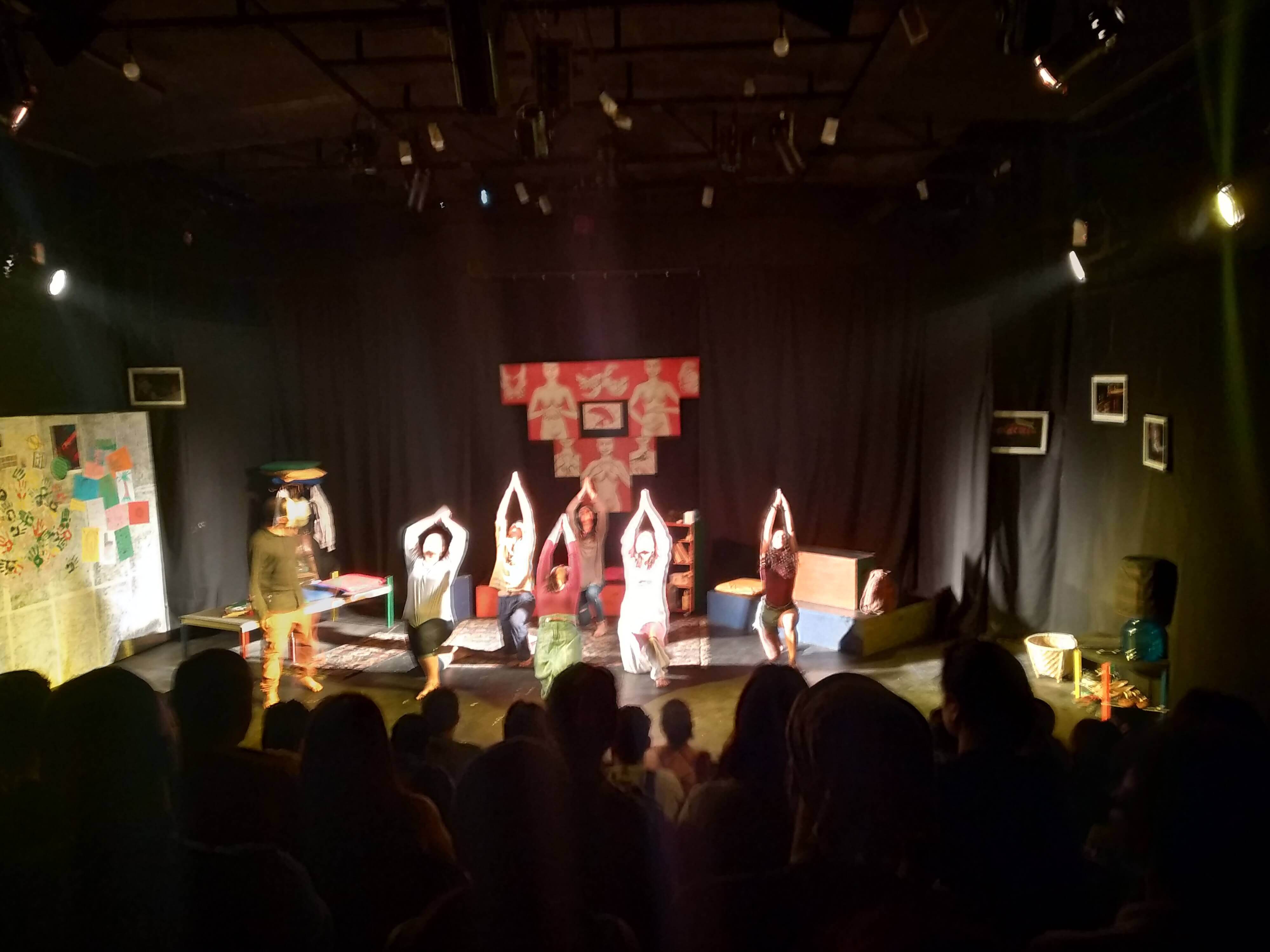Private is political

The Vagina Monologues is being performed in Nepal for the fourth time, and this rendition at the Kausi Theater does not adher to Eve Ensler's classic text. This localised version is based on stories of Nepali women and is therefore much more relatable and impactful to the local audience.
The meta performance starts with a group of theatre artists who are actually acting out a rehearsal of a production of Vagina Monologues. Nepali stories have been adapted to fit the original frame of the play -- Nirmala Panta tearfully speaks graphically of the moment she was violated, while a conflict-era sexual abuse victim explains how prolonged her pain has been. These stories are presented in a sensitive, and not sensationalised way, which makes viewers share the trauma themselves.
As the women rehearse the pieces, they begin talking about how it relates to their own lives, and story has a desperate intensity because of the scandal rocking Nepal's own drama scene with several male directors stand accused of sexual harassment.
"If this guy is bugging you so much, why do you still work with him?" one character asks, while the other replies: "Then who do I work with? There isn't anyone else."
In another scene, actresses urge one among them to share her story in the mainstream and social media. But then they realise that the survivor is the one who will be blamed, whose life will change dramatically, and who will have very little support to continue her acting career.
The scenes in the play bring alive a world of women: how they talk to each other, how they open up gradually after one person starts a thread, how they console each other, and finally, how they often end up being silent because there are no options.
But the play also depicts how things are changing by renacting the sexual harassment cases that are rocking Nepal's theatre world in real time. Actresses have accused three noted theatre directors of sexual harassment in a popular weekly tabloid, leading to much discussion and division in the world of Nepali drama. Their confessions led the theatre community temporarily banning some actors -- a significant achievement here. The stage thus becomes the vehicle through which the accusations are documented and spread to more people.

The play engages with the current discourse about rape and sexual abuse being a manifestation of power imbalance. The fallback argument is often 'not all men', but the play gives a fitting comeback to that as well: "If I am being followed by a potentially dangerous person and I am scared, it won't help me to say not all men are like that."
Directed by Akanchha Karki, the play does not create any strong characters because the cases represent the experiences of all kinds of women. Nevertheless, together the stories create an emotionally intense experience that makes viewers question and reevaluate their values. Several talented actors and actresses bring these stories to life, among whom Loonibha Tuladhar deserves special mention for her perfect timing, both in serious and comic scenes with their dark humour.
The play tackles conversations among men about sexuality, abuse, and consent. It presents the viewpoint of a lot of people who think that gender inequality and abuse don't exist, because today women can go out to work, wear the clothes they want, own property, vote, and even chhaupadi has been abolished by the government.
"The play is based on true events, but you may not believe any of it," says one character sardonically at the end of the play. "After all, it was made by a woman."

Vagina Monologues 4.0: Private is Political
Kausi Theater, Teku
Until 11 May




